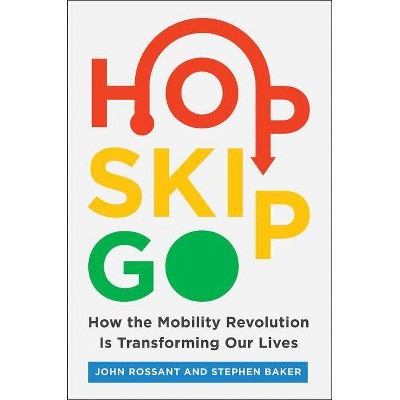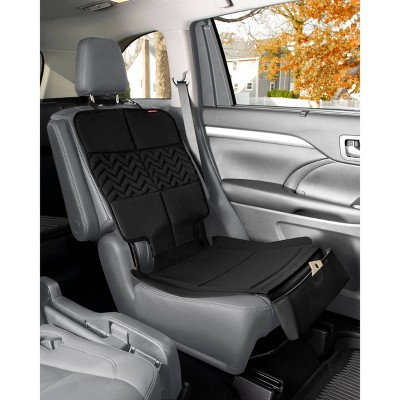Hop, Skip, Go - by John Rossant & Stephen Baker (Hardcover)

Similar Products
Products of same category from the store
AllProduct info
<p/><br></br><p><b> About the Book </b></p></br></br>Urban expert Rossant and business journalist Baker look beyond the false promises of the past to examine the real future of transportation and the repercussions for the world's cities, the global economy, the environment, and in individual lives.<p/><br></br><p><b> Book Synopsis </b></p></br></br><p>Urban expert John Rossant and business journalist Stephen Baker look beyond the false promises of the past to examine the real future of transportation and the repercussions for the world's cities, the global economy, the environment, and our individual lives.<br/><br/>Human mobility, dominated for a century by cars and trucks, is facing a dramatic transformation. Over the next decade, new networked devices, from electric bikes to fleets of autonomous cars, will change the way we move. They will also disrupt major industries, from energy to cars, give birth to new mobility giants, and lead to a redesign of our cities. For Rossant and Baker, this represents the advance of the Information Revolution into the physical world. This will raise troubling questions about surveillance, privacy, the dangers from hackers and the loss of jobs. But it also promises startling efficiencies, which could turn our cities green and, perhaps, save our planet.</p><p>In an engaging, deeply reported book, the authors travel to mobility hotspots, from Helsinki to Shanghai, to scout out this future. And they visit the companies putting it together. One, Divergent3d, is devising a system to manufacture cars with robots and 3D printers. PonyAI, a Chinese-Silicon Valley startup, builds autonomous software that perceives potholes, oncoming trucks, and wayward pedestrians, and guides the vehicle around them. Voom, an Airbus subsidiary, is racing with dozens of others to operate fleets of air taxis that fly by themselves.</p><p><em>Hop, Skip, Go</em> is about us: billions of people on the move. Underlying each stage of mobility, from foot to horse to cars and jets, are the mathematics of three fundamental variables: time, space and money. We measure each trip we take, whether to Kuala Lumpur or the corner drugstore. As the authors make clear, the coming mobility revolution will be no different. As they unveil the future, the authors explore how these changes might revamp our conception of global geography, the hours in our days, and where in the world we might be able to go.</p><p/><br></br><p><b> Review Quotes </b></p></br></br><br>"Fascinating... Rossant and Baker's study convincingly forecasts how new technologies might 'change our cities, our economies, and the fabric of our lives."--<em>Publishers Weekly</em><br><br>"How we live in cities--how we experience cities--is a direct reflection of how we move around. In fact, a city's very identity is intimately connected to transportation--from the Paris Metro to London's double-deckers and black cabs to the freeways of Los Angeles. <em>Hop, Skip, Go </em>paints an extraordinary portrait of the profound revolution underway in mobility--and the dramatic impacts this will have on the twenty-first-century city."--Daniel Libeskind, architect<br><br>"Mobility is about us: enabling billions of people on the move with a new promise for freedom and choice. Rossant and Baker tell us stories of 3-D printed cars assembled by robots, accessible at your fingertips through ubiquitous apps and moving autonomously guided by networked devices. Mobility is the killer app for the fourth industrial revolution."--Klaus Schwab, professor and founder and executive chairman of the World Economic Forum<br><br>"The automobile era is giving way to a new form of networked mobility, driven by digital technology but involving everything from electric, driverless vehicles to bicycles to our two feet. In this engaging and important book, Rossant and Baker tell the eye-opening story of the mobility revolution and what it means for our society, our planet, and each and everyone one of us."--Richard Florida, author of <em>The Rise of the Creative Class </em><br>
Price History
Cheapest price in the interval: 15.29 on November 8, 2021
Most expensive price in the interval: 15.29 on December 20, 2021
Price Archive shows prices from various stores, lets you see history and find the cheapest. There is no actual sale on the website. For all support, inquiry and suggestion messagescommunication@pricearchive.us




















